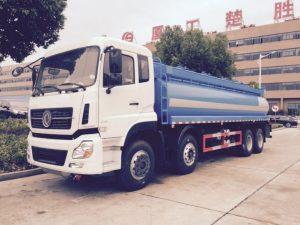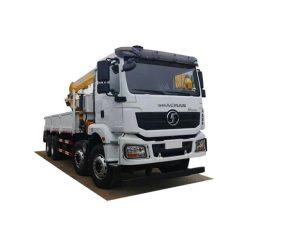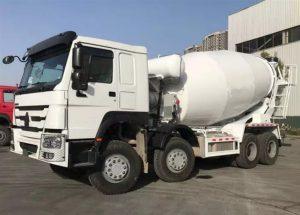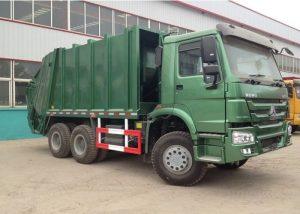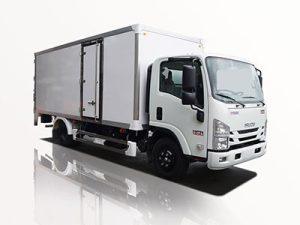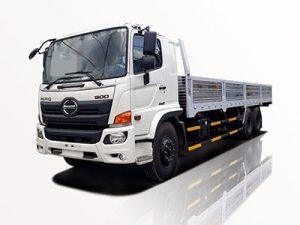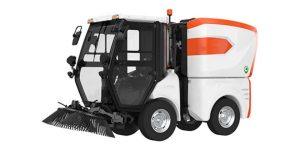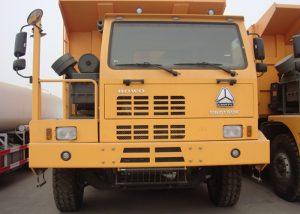Monday to Saturday - 8:00 -17:30
Understanding the Old Trash Truck: History, Uses, and Future Prospects
When we think about waste management, the image of a trash truck might come to mind. In this article, we’re focusing on the “old trash truck,” exploring its historical significance, uses, and future prospects. Whether you’re a waste management professional, a vehicle enthusiast, or simply curious about the evolution of this important vehicle, this comprehensive guide will provide you with all the information you need.
Table of Contents
- History of Old Trash Trucks
- Design Features of Old Trash Trucks
- Types of Old Trash Trucks
- Maintenance Tips for Old Trash Trucks
- Retrofitting an Old Trash Truck
- Environmental Impact of Old Trash Trucks
- Regulatory Aspects of Old Trash Trucks
- Collectibles and Restoration of Old Trash Trucks
- Future Prospects of Old Trash Trucks
- FAQs
History of Old Trash Trucks
The origins of trash collection vehicles can be traced back to the late 19th century. Here’s a deeper look into the timeline:
Early Beginnings
The first refuse collection methods involved horse-drawn carts, which were not very efficient. These carts required significant manpower and were often overrun by waste.
Introduction of Motorized Trucks
With the advent of the automobile in the early 1900s, cities began to adopt motorized trucks for waste collection. The first motorized trash trucks were used to improve efficiency and reduce labor costs.
Post-War Developments
After World War II, advancements in technology led to more powerful trucks and better waste compacting mechanisms. This is when we begun to see the classic design of old trash trucks that many remember fondly today.
Design Features of Old Trash Trucks
Old trash trucks had distinct features that set them apart from modern vehicles:
| Feature | Description |
|---|---|
| Chassis | Sturdy and robust to handle heavy loads. |
| Compaction System | Hydraulic compaction systems for efficient waste management. |
| Body Material | Designed using steel or aluminum for durability. |
| Driver Cabin | Comfortable and ergonomic with basic controls. |
Types of Old Trash Trucks
There are several types of old trash trucks, each designed for specific waste management needs:
Front-Loading Trucks
These trucks have hydraulic arms that lift the bins from the front, making them suitable for commercial waste collection.
Rear-Loading Trucks
The rear-sizing trucks allow for easy access to the waste from the back. Operators can quickly load garbage from sidewalks.
Side-Loading Trucks
These trucks are designed for high-density urban areas where space can be a challenge, allowing crews to load waste from one side.
Maintenance Tips for Old Trash Trucks
To keep an old trash truck in good condition, follow these maintenance tips:
Regular Inspections
Check the engine, transmission, and hydraulic systems at regular intervals to ensure everything is functioning correctly.
Oil Changes
Regularly change the engine oil to prolong the life of the motor. Old trucks may require oil changes more frequently than newer models.
Tire Care
Inspect tires for wear and uneven tread. Replace tires that show signs of significant wear.
Cleaning
Keep the body of the truck clean to prevent rust and corrosion. Regular washing will remove grime and waste residues.
Retrofitting an Old Trash Truck
Retrofitting involves upgrading an old trash truck to improve efficiency and compliance with modern standards.
Modern Engines
Consider installing a more efficient engine that meets current emissions regulations.
Updated Technology
Install GPS systems for route optimization to reduce fuel consumption and improve service efficiency.
Improved Safety Features
Adding safety features like rear cameras and better lighting technology can enhance the safety of the truck and its operators.
Environmental Impact of Old Trash Trucks
Old trash trucks can have a significant environmental impact, especially if not maintained. Here are some points to consider:
Fuel Efficiency
Older models tend to consume more fuel, contributing to air pollution. Retrofitting with modern engines can mitigate this issue.
Emissions
Outdated trucks may emit higher levels of harmful gases. Regular inspections and upgrades can help in controlling emissions.
Noise Pollution
Old trash trucks can be noisier than new models, affecting residential areas where waste collection occurs.
Regulatory Aspects of Old Trash Trucks
With increased focus on sustainability, there are important regulations affecting the operation of old trash trucks:
Emission Standards
Various states and countries have stringent emission standards that old trucks may fail to meet, leading to fines or mandatory upgrades.
Safety Regulations
Ensuring compliance with safety regulations is essential. Operators need to ensure that old trucks meet the safety standards required for public roads.
Collectibles and Restoration of Old Trash Trucks
For many enthusiasts, old trash trucks serve as collectibles:
Restoration Projects
Restoring an old trash truck can be a fulfilling project. Ensure you source parts from reputable suppliers or look for salvage yards.
Community Events
Many collectors participate in community events showcasing vintage trucks. Engaging with others in the community can provide valuable insights on restoration.
Resale Value
Restored trash trucks can have a significant resale value if they are maintained well and in good condition.
Future Prospects of Old Trash Trucks
The future of old trash trucks may still hold promise in various sectors:
Transition to Alternative Fuels
Many old trash trucks can be converted to run on electric or compressed natural gas, aligning with modern sustainability goals.
Recycling and Upcycling
Old models can be repurposed for different uses, such as mobile workshops or food trucks, showcasing their versatility.
Preservation Initiatives
Some communities are starting preservation initiatives for historical trucks, especially those with unique designs or historical significance.
FAQs
What defines an old trash truck?
An old trash truck generally refers to models that are over 15-20 years old, depending on the manufacturer and particular features.
Are old trash trucks still in use today?
Yes, many old trash trucks are still in operation, especially in smaller communities or where budget constraints prohibit the purchase of new vehicles.
Can I still find parts for old trash trucks?
Yes, parts can often be found through specialized suppliers, salvage yards, or online marketplaces focused on vintage vehicles.
What are the benefits of retrofitting an old trash truck?
Retrofitting can improve fuel efficiency, ensure compliance with modern emissions standards, and enhance overall safety features.
Is there a market for collectible old trash trucks?
Absolutely, many collectors seek out old trash trucks due to their unique designs and history. Restored models can fetch a good resale price.


